Nootropics, also called “smart pills,” is a term used to describe synthetic or organic substances that improve brain functioning. Even if you aren’t familiar with the term, you’ve likely encountered nootropics before—you may even start your day with one. Caffeine is a highly effective nootropic.
At Rasāsvāda, we use herbal and whole-food nootropics, including ginseng, l-theanine, and reishi mushroom, in several of our functional spirits to support mental clarity and vitality.
Learn about the benefits of these natural nootropics, how they work, and how to incorporate them into your daily ritual.
What Are Nootropics?
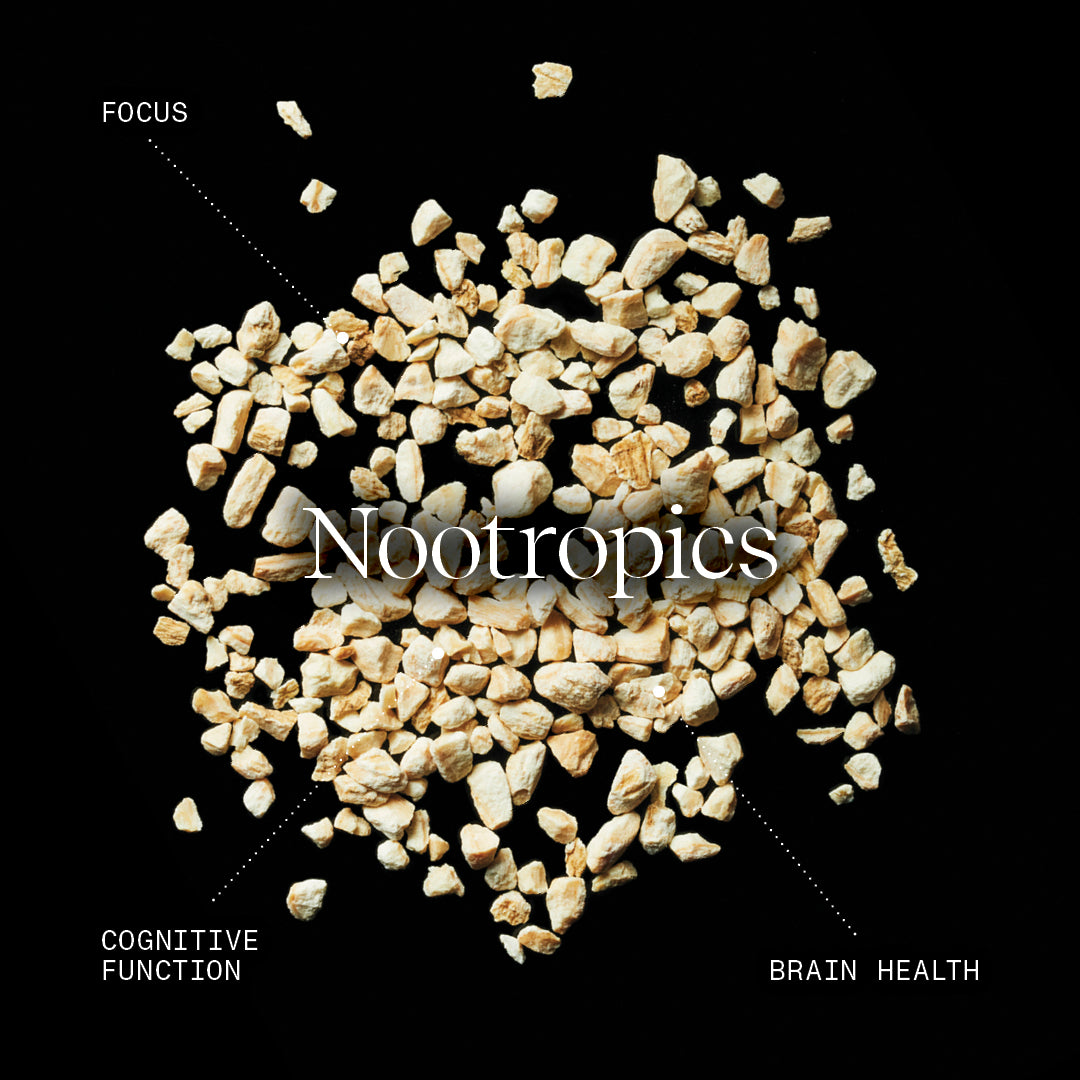
Nootropics is a broad term to describe medicinal substances (either natural or synthetic) that positively impact cognitive function. Nootropics may improve focus, memory, thinking, or alertness, or affect the brain in other ways. There are many different types of nootropics, and they work in various ways to improve brain performance.
Common types of nootropics
Pharmaceutical: Adderall, Ritalin, and Modafinil. Many prescription nootropics are used to treat cognitive impairments such as seizure disorders, ADHD, narcolepsy, or dementia.
Herbal: L-theanine, Omega-3, Rhodiola Rosea, Ginkgo Biloba, Ashwagandha, and caffeine.
Dietary: Foods high in fiber, omega-3s, antioxidants, and vitamins like oatmeal, chia, seeds, walnuts, berries, red cabbage, and broccoli are thought to have neuroprotective effects, meaning they can help keep your brain healthy.
How Do Nootropics Work?
Researchers are still working out some of the details on how, exactly, certain nootropics benefit brain function. Some nootropics are antioxidants that help reduce brain inflammation and can preserve brain health. Others are adaptogens that may act on natural brain chemicals like GABA, which promotes relaxation and attention, while other nootropics increase oxygen levels in the brain.

Herbal Nootropics in Rasāsvāda and Benefits
Rasāsvāda uses nootropic natural herbs and whole foods to enhance both flavor and functionality of Ruby Artemisia, Rose Bergamot, and Black Ginger spirits.
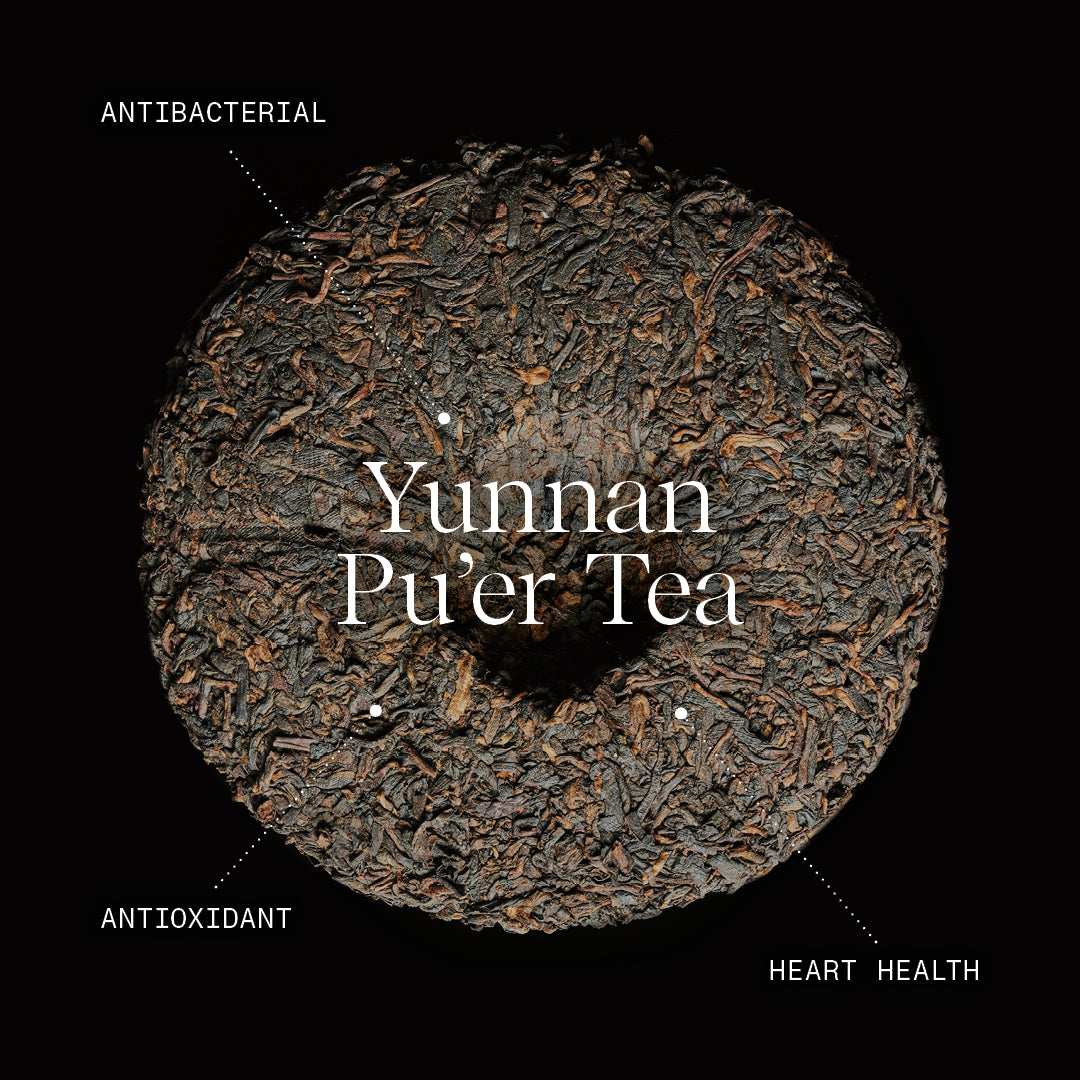
L-theanine
Many of the health-boosting accolades associated with green tea can be attributed to a naturally occurring compound found in tea leaves called L-theanine. L-theanine on its own is thought to promote relaxation, but when paired with caffeine, which also naturally occurs in green tea, the duo can help support attention, memory, and cognition. Researchers think the combination may work by influencing certain neurotransmitters, substances that help brain cells communicate to regulate mood, sleep, movement, and other important functions. Rasāsvāda’s Ruby Artemisia contains two types of green tea, Yunnan Pu’er Tea and Kurokoji.
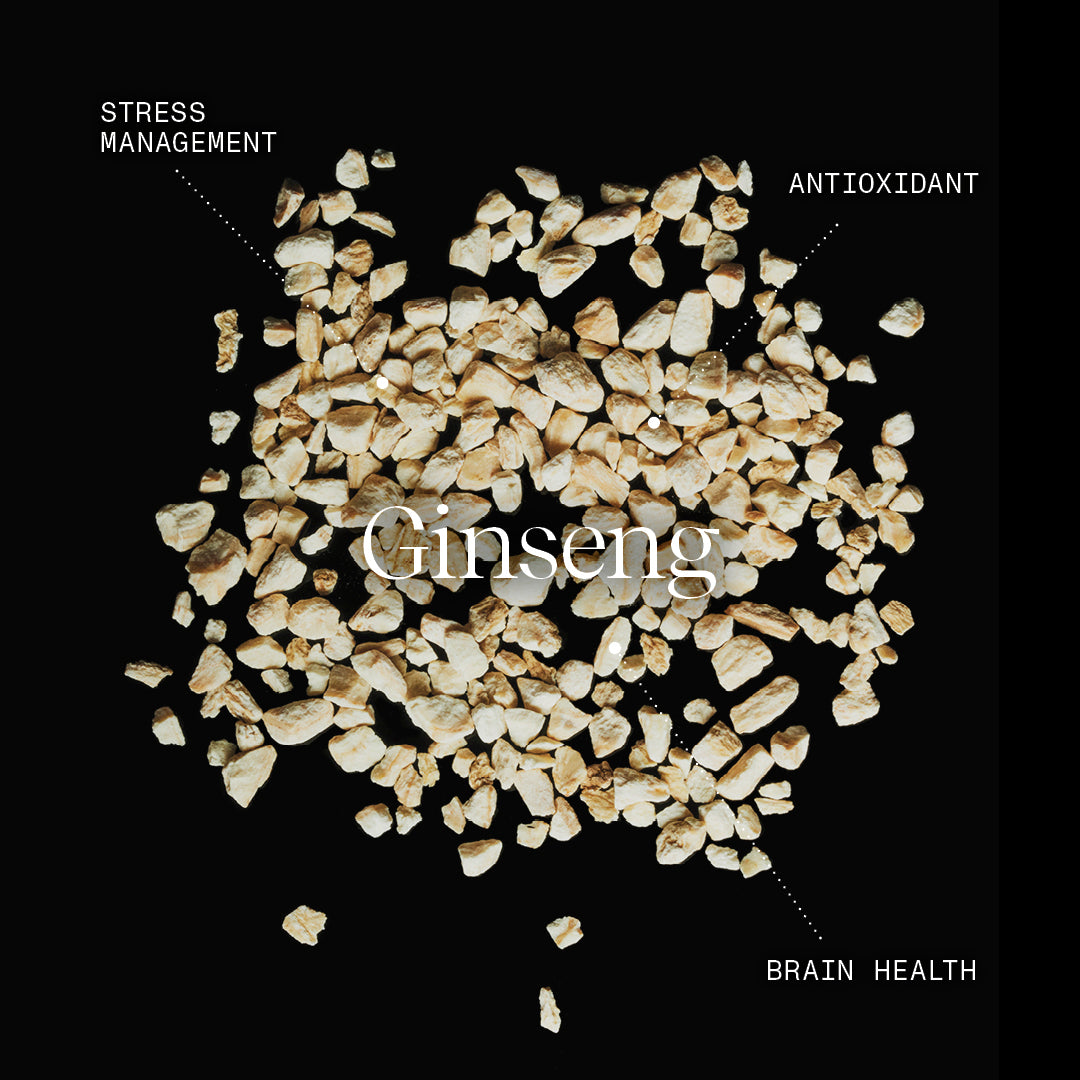
Ginseng
Ginseng is an adaptogenic herb, popular for its ability to help the body adapt to stress. It has cognitive benefits too. Scientists think ginseng may support memory and cognitive function in people who are experiencing mild cognitive impairments (think impairments beyond what might be considered typical for a person's age, but mild enough that it does not interfere with daily functioning).
Researchers think ginseng may work by stimulating blood flow to the brain and by protecting cells from damage by free radicals, chemicals that occur naturally in the body but can be harmful in large amounts. Rasāsvāda's Rose Bergamot features ginseng as a foundational ingredient.
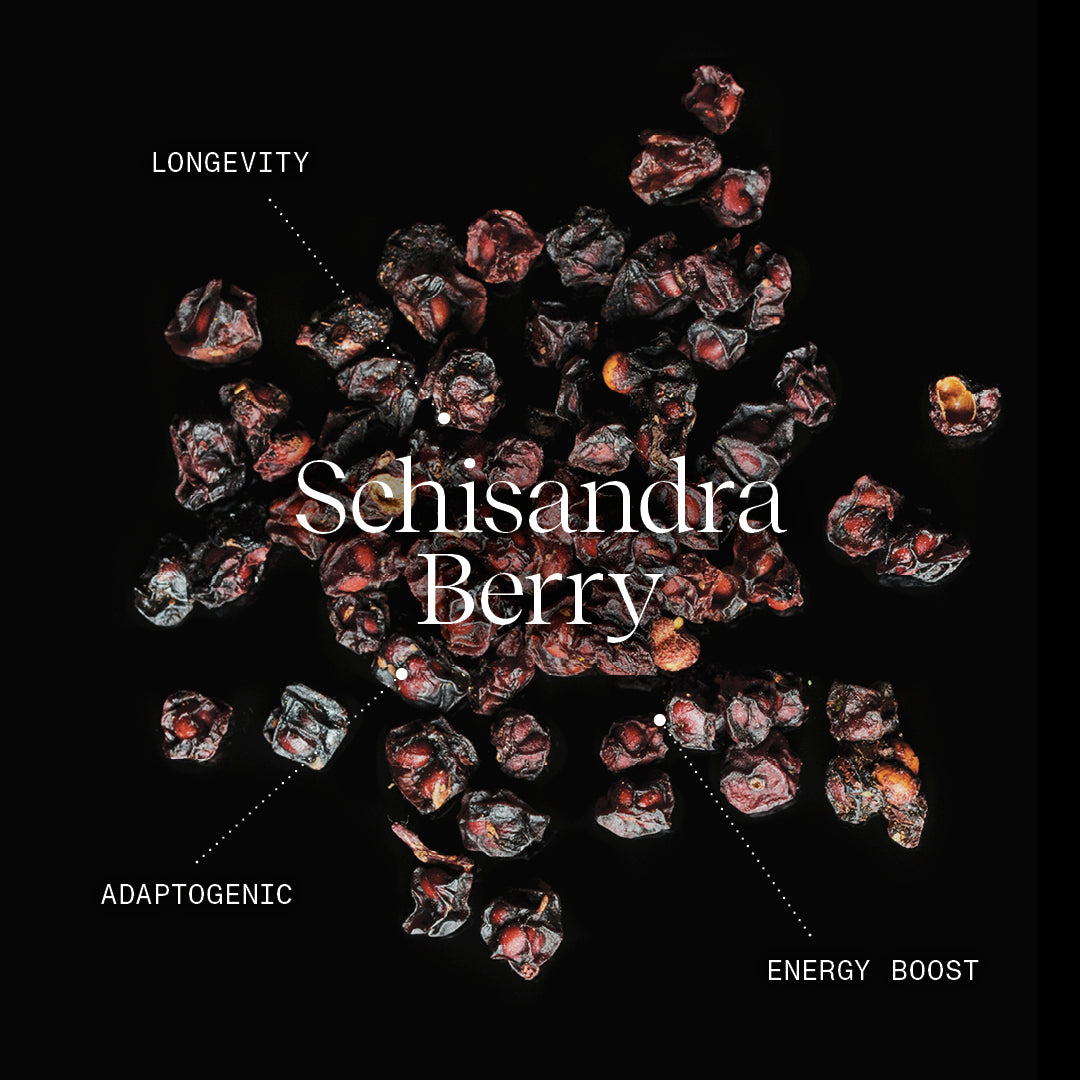
Schisandra Berry
Schisandra berry is a unique fruit because its medicinal uses date back thousands of years, and it’s used widely in Eastern medicine for its array of health benefits. Modern research supports ancient wisdom as scientists think Schisandra berry may have neuroprotective effects. That means it can help protect neurons (brain cells) from damage due to age or disease. This is likely due to the high amounts of antioxidants present in the berry.
Schisandra berry is a foundational ingredient in both Rasāsvāda's Ruby Artemisia and Rose Bergamot.
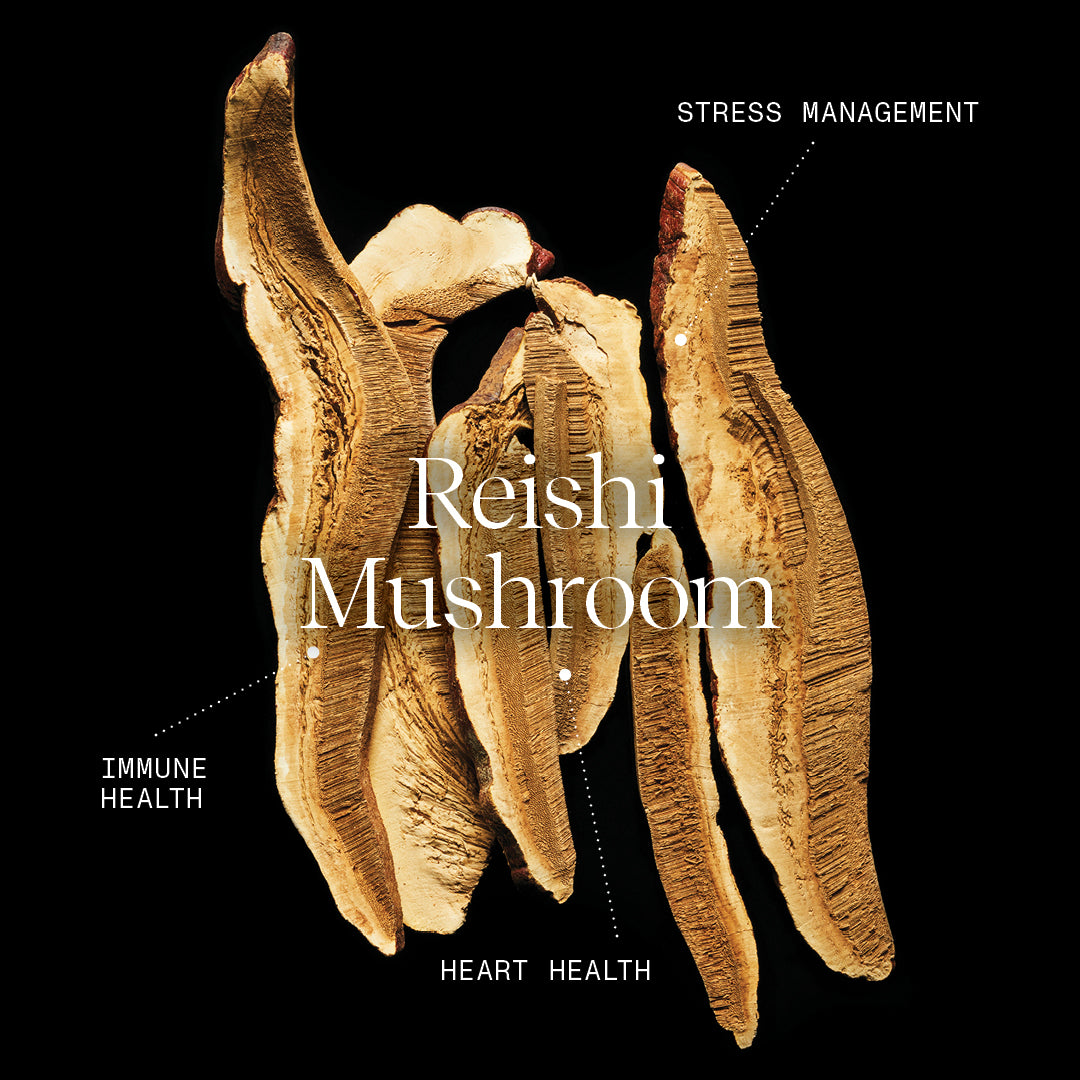
Reishi Mushroom
Reishi mushrooms aren’t like the ones you’ll find at the grocery store. They are medicinal mushrooms used in traditional Eastern medicine and are popular in supplements for their ability to support immune health and energy. Researchers are currently exploring reishi as a potential treatment for neurodegenerative disorders like parkinsons, and mood disorders like depression and anxiety. They have important bioactive compounds that act like powerful antioxidants and can protect cells from damage.
Reishi mushroom is a foundational ingredient in Rasāsvāda's Black Ginger.
What Is the Most Effective Nootropic?
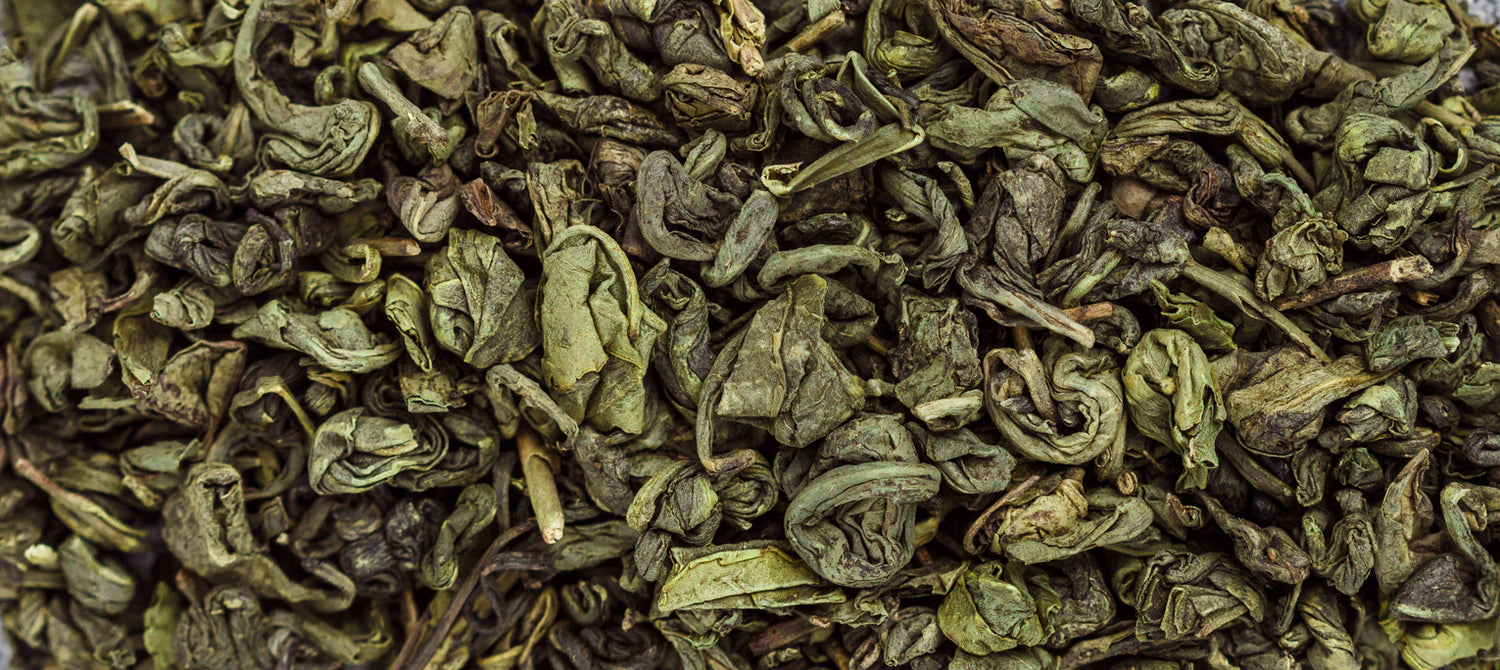
Everyone will respond differently to nootropics, so what works for one person may not work for another. For example, caffeine can make some people feel jittery and anxious, while others may feel energized and productive.
That said, certain herbal nootropics have stronger research to support their uses than others.
The blend of L-theanine and caffeine is one of the most promising herbal nootropics for supporting focus, memory, and cognition. This combination is found naturally in types of green tea, though amounts will vary, depending on the tea and how it’s prepared.
The Controversy Around Nootropics
The idea that nootropics (specifically prescription nootropics) can help improve overall intelligence is a common (and dangerous) misconception that leads people to misuse these medications as “cognitive performance enhancers” to help boost overall productivity. This can be dangerous as all prescription medications have side effects, some of which are severe. Prescription nootropics can also have the potential for dependency. Always consult your healthcare provider before taking any medication.
Conversely, people often equate natural remedies with safety and zero risk. While natural nootropics tend to have only mild side effects, supplements are not regulated by the FDA, meaning the FDA does not approve or test supplements before a product hits the market. Because of this, products may contain ingredients not listed on the label. Reputable brands will be USP or GMP certified.
At Rasāsvāda, we use whole plants from start to finish with nothing else added. Our ingredients are sourced around the globe, and most are wild-harvested and hand-gathered, respecting native traditions.
Natural Nootropics
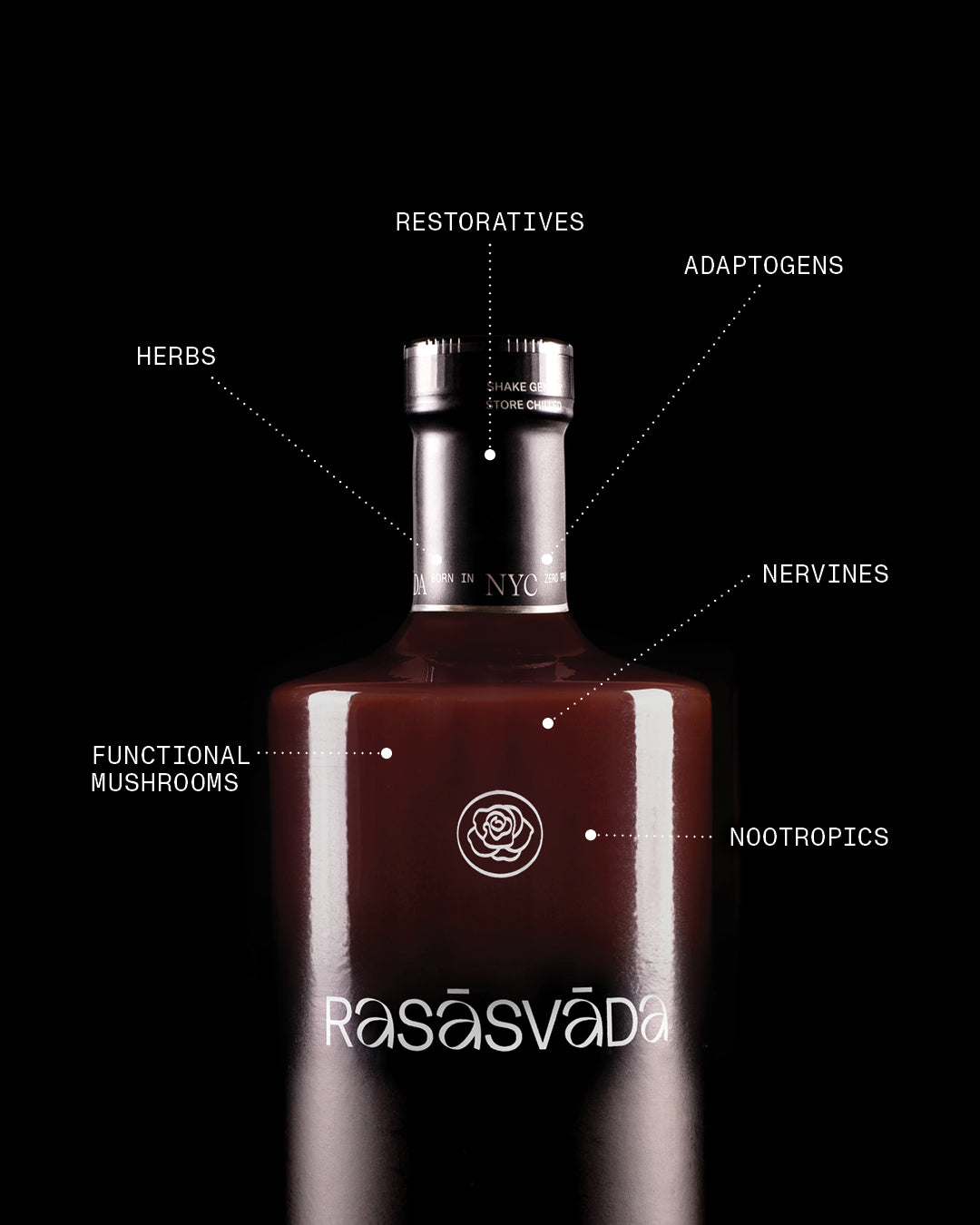
Rasāsvāda’s functional spirits are made with 100% plants, including nootropics, adaptogens, and functional mushrooms. These restorative spirits can be enjoyed as part of your daily ritual to support your well-being.
Try the only drink created from ancient herbal traditions and tested by longevity scientists.
Key Takeaways
Nootropics is a term used to describe medicinal substances used to improve cognitive functioning. Nootropics can include prescription drugs, herbal remedies, or whole foods. Ginseng, L-theanine, caffeine, reishi mushroom, and schisandra berry are types of herbal nootropics that may have brain boosting benefits and neuroprotective effects.
FAQs
100% plants. 0% preservatives.

Discovery Pack
Try them all.
With the Discovery Set, you’ll receive a 375ml bottle of each of our three expressions, each one unique in flavor and function.
Everyone has a favorite—find yours.
100% Plants. 0% Preservatives.
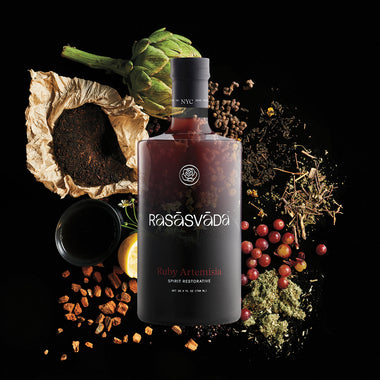
- Longevity
- Skin health
- Gut health
Bright, tart, and slightly sweet.
Hero ingredients: Maqui berry, wormwood, Yunnan Pu'er tea, artichoke leaves, red wine grape skins + 10 other plants.
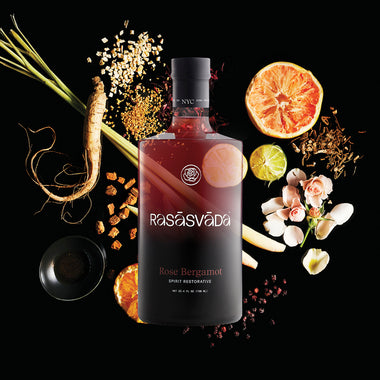
- Mental clarity
- Stress management
- Vitality
Floral, rare citrus, and bitter.
Hero ingredients: Schisandra berry, ginseng, bergamot citrus, Angelica archangelica, rose petals + 10 other plants.
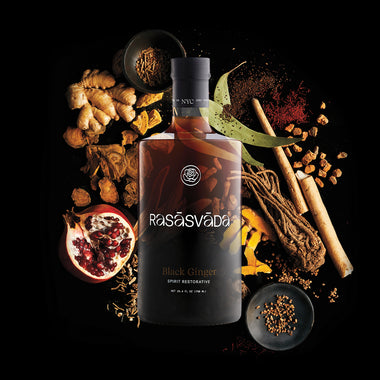
- Natural cleansing
- Libido support
- Recovery
Bold, bittersweet, and earthy.
Hero ingredients: Black ginger, burdock root, cardamom, Meshima mushroom, Reishi mushroom + 13 other plants.
Sources
Translational neurodegeneration | Nootropic foods in neurodegenerative diseases: mechanisms, challenges, and future
Nutrients | Nootropics as Cognitive Enhancers: Types, Dosage and Side Effects of Smart Drugs
Foods | Mushrooms as Nutritional Powerhouses: A Review of Their Bioactive Compounds, Health Benefits, and Value-Added Products
Cureus | The Cognitive-Enhancing Outcomes of Caffeine and L-theanine: A Systematic Review
Nootropic Herbs, Shrubs, and Trees as Potential Cognitive Enhancers | Plants
Nootropics as Cognitive Enhancers: Types, Dosage and Side Effects of Smart Drugs| Nutrients
California State University | Medicinal Mushrooms for Cognition and Mood: A review of human clinical trials
International Journal of Advanced Multidisciplinary Research and Studies | Ganoderma Lucidum: A Comprehensive Review of its Health Benefits and Therapeutic Potential
Medical Research Reviews | Neuroprotective, neurogenic, and anticholinergic evidence of Ganoderma lucidum cognitive effects: Crucial knowledge is still lacking
